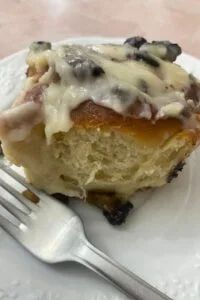This post may contain affiliate links. Read our disclosure policy.
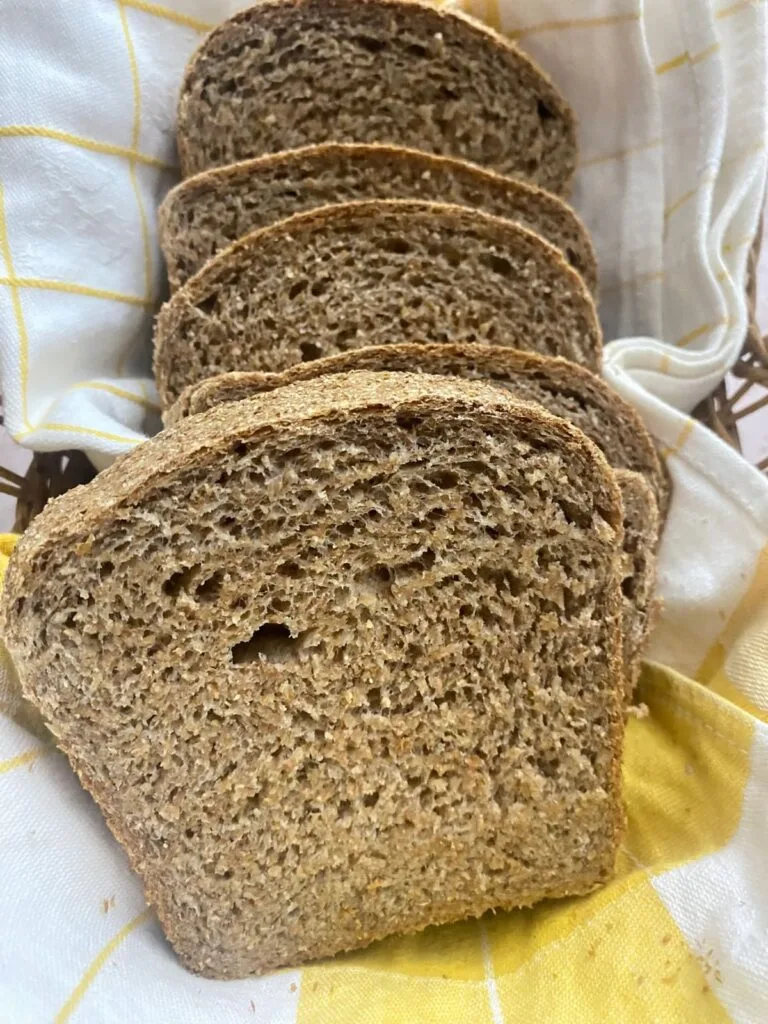
I’ve made this healthy and flavorful wheat bran bread recipe for many years. Typically, I make this recipe with a generous portion of wheat bran with a mixture of bread and whole wheat flour along with 7 simple ingredients that give it a deep, earthy flavor with a tender crumb, as well as make it a rich source of fiber, each slice offering 5 grams. And today, I will show you everything you need to make this soft wheat bread right at home, with an easy-to-follow recipe and step-by-step pictures.
What is Bran Bread?
As the names suggest, bran bread is type of bread made primarily from the wheat bran, the outer layer of wheat kernel, making it a highly nutritious and excellent source of fiber, which may benefit digestive, heart health and could even reduce breast and colon cancer risk, as I read in this article from Healthline.
Regardless of its nutritional value, bran bread typically has a hearty, nutty flavor and denser, darker texture compared to other types of bread. Similar to whole wheat and multigrain bread, bran bread can be enjoyed in a variety of ways, whether in sandwiches such as grilled cheese or French toast or as a side with meals.
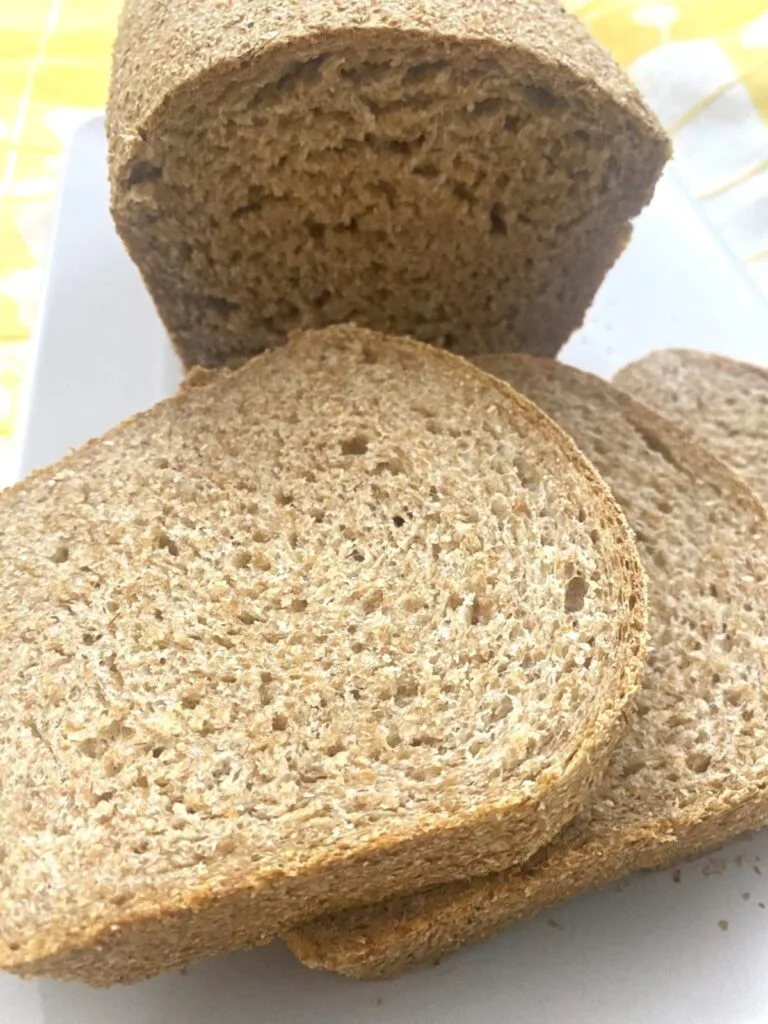
Here’s Why You’ll Love This bran Loaf
- Bran-coated chewy crust with a soft texture
- Flavorful & hearty
- Makes the best toast, grilled cheese sandwich and can be used in various recipes like French toast & bread pudding
- Easy-to-substitute ingredients
Best Ingredient to Use in Bran Bread
In this recipe I use 3 types of flour: a mix of whole wheat and bread flour along with wheat bran flour. You can only use bread or wheat flour if you want to, But consider adjusting the amount of liquid by adding some extra. Here’s a list of the other ingredients:
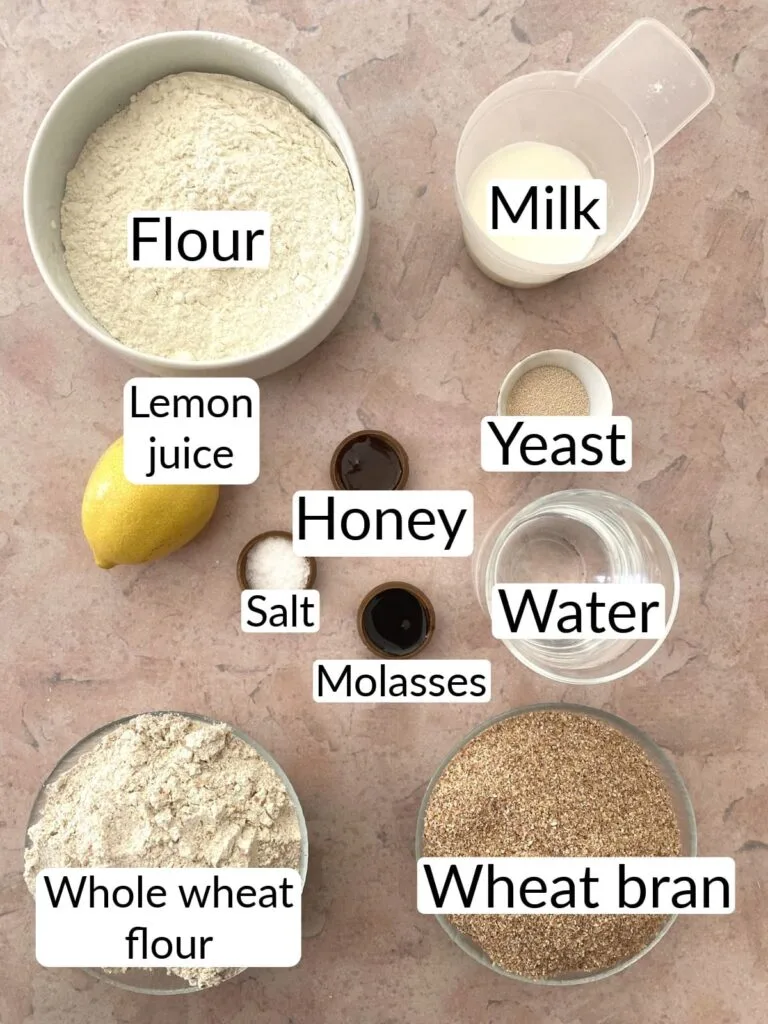
- Oils: I used olive oil for the dough and vegetable oil for the coating, you can only use one for both processes.
- Yeast: In this recipe, you can use either instant dry yeast, active yeast, or fresh yeast. If you’re using fresh yeast, triple the amount.
- Liquid: Use a lukewarm milk and water to accelerate the activity of the sponge starter. Room temperature water is enough to hydrate the flour and activate the gluten during the kneading process.
- Honey: You can use either honey or sugar to add sweetness and help feed the yeast.
- Molasses: gives the bread a beautiful dark brown color.
- Lemon juice: Natural lemon juice acts as a natural dough improver. If you don’t have lemon juice, use apple cider vinegar instead.
- Salt: To enhance the overall flavor.
In picture: How to make Bran Bread
Prepare the sponge by heating a 1/4 cup of milk, then mix it with a 1/4 cup of water to obtain a lukewarm liquid. Pour in medium mixing bowl, add all of the yeast and 1/4 cup of bread flour. Stir together and cover for 30-40 minutes until double in size.
This is the sponge after rising:
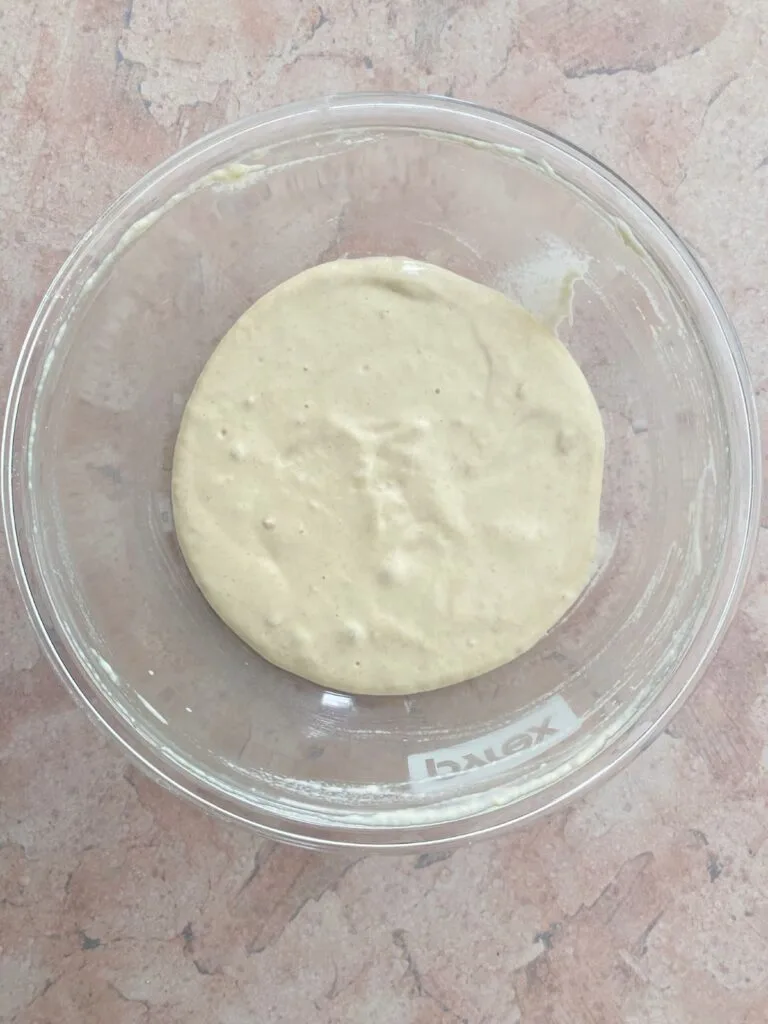
Once the sponge doubles in size, pour it in large mixing bowl and add the remaining ingredients including flours, water, honey, molasses, salt, juice and oil. Mix all the ingredients together until well combined and the side of bowl is clean.
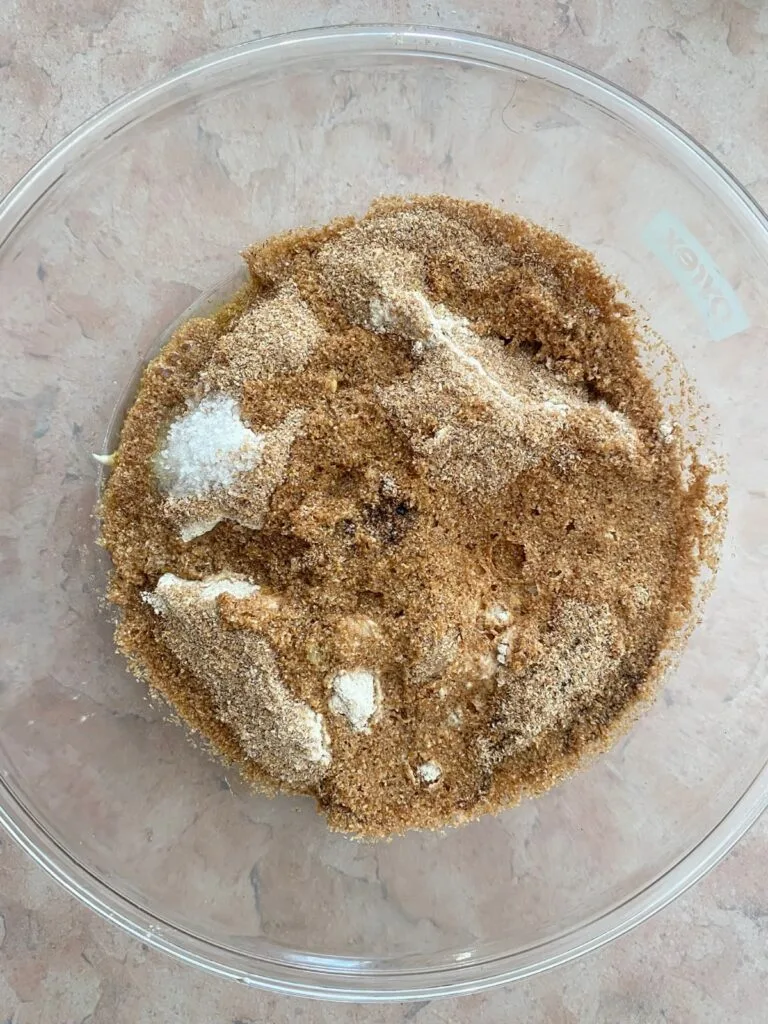
This the dough after well combined:
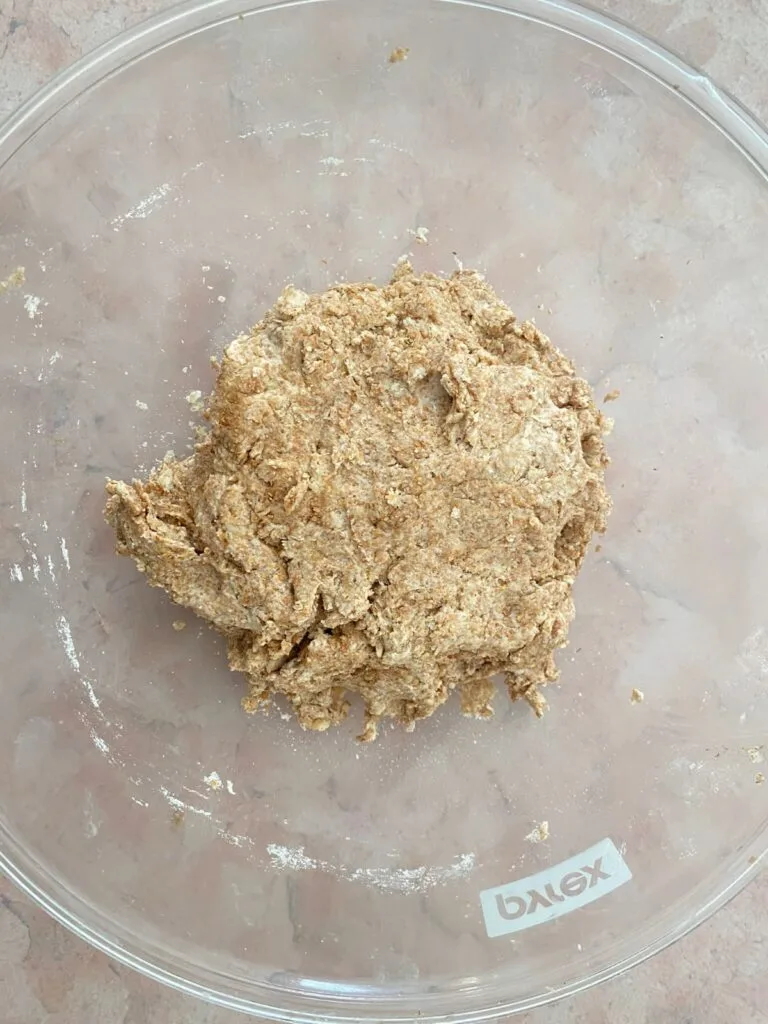
After that, transfer the dough to the work surface, you don’t need to flour your work surface as the dough is already oiled. Knead well for 8 minutes until the dough is smooth. You can see the picture below to know the right dough texture. If you have an stand mixer you can use it, this will make it easier. Form the dough into a ball and place in a greased bowl.
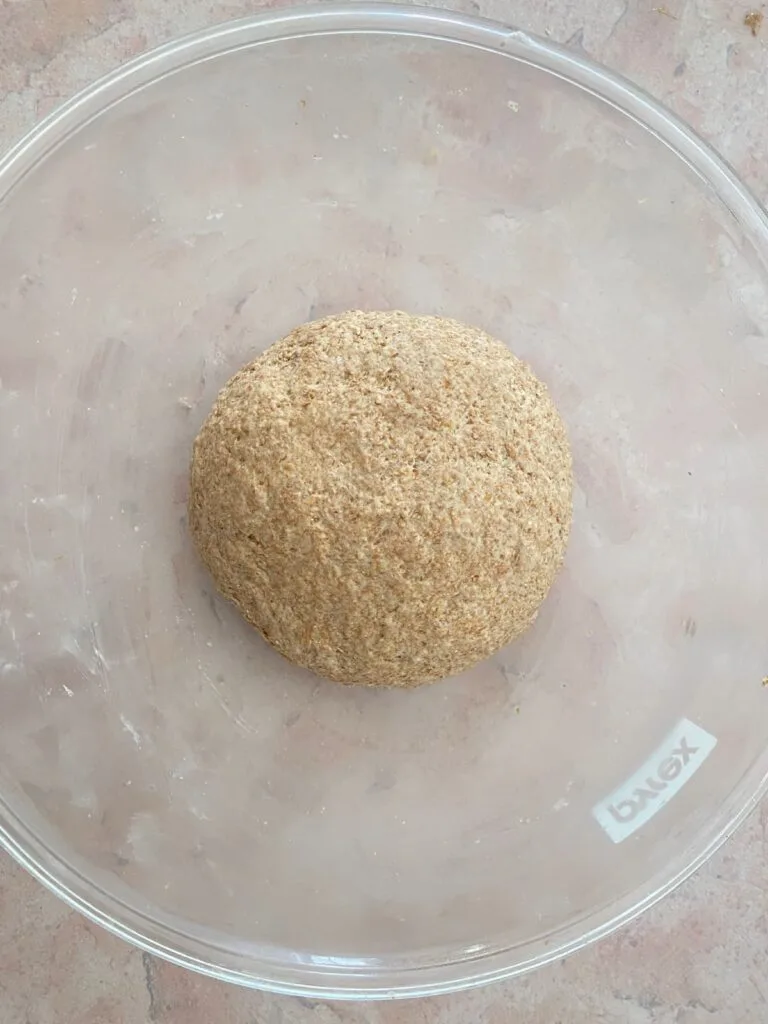
The dough after the 1st rise time:
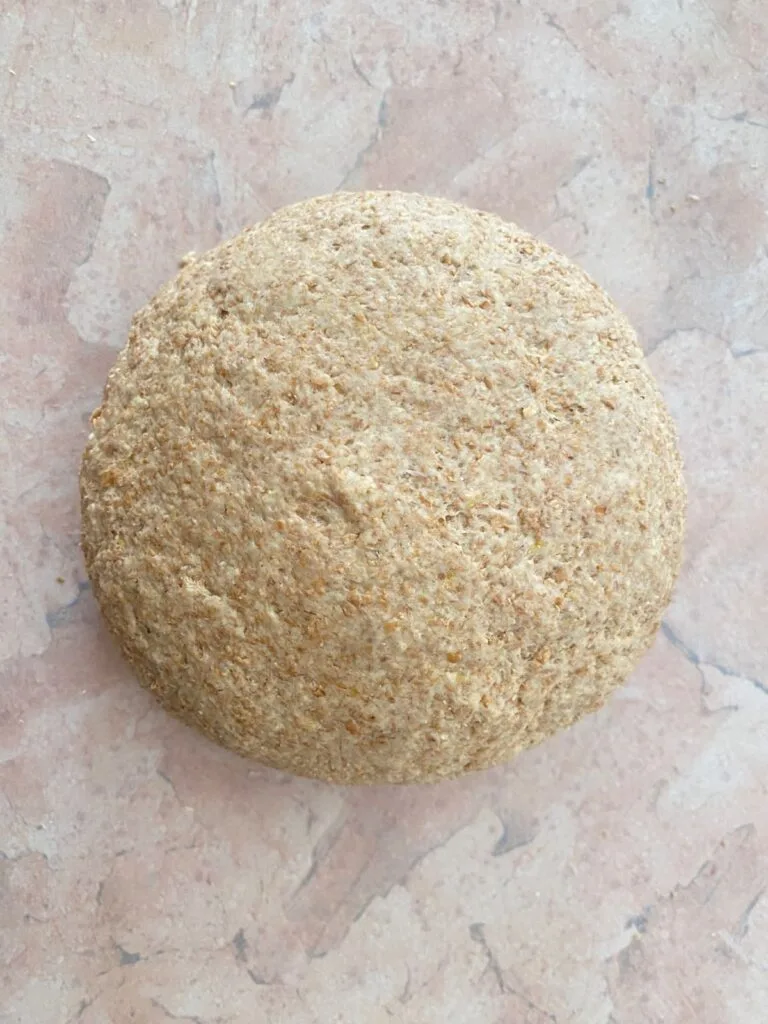
Gently flatten the dough into a rectangular shape and shape you bread. You can see the pictures below for step-by-step instruction on how to shape the dough.
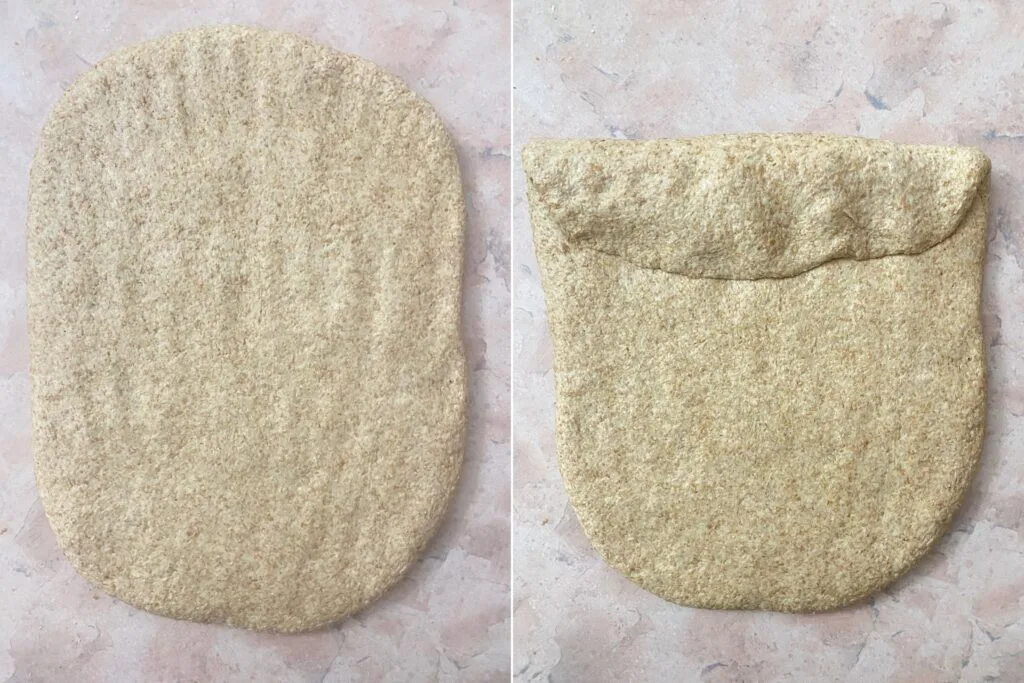
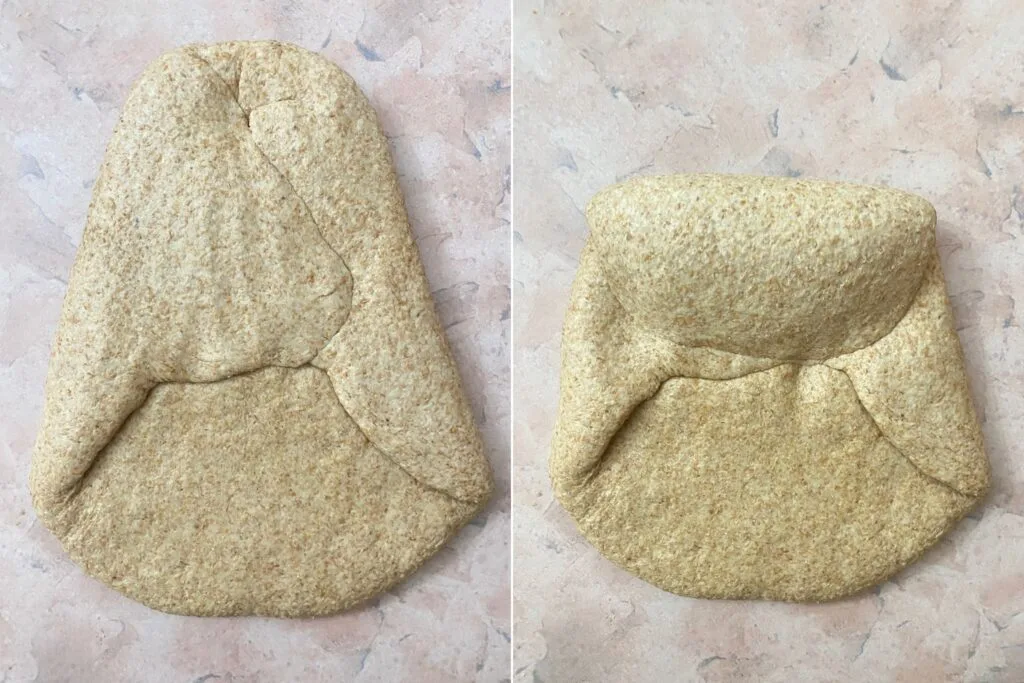
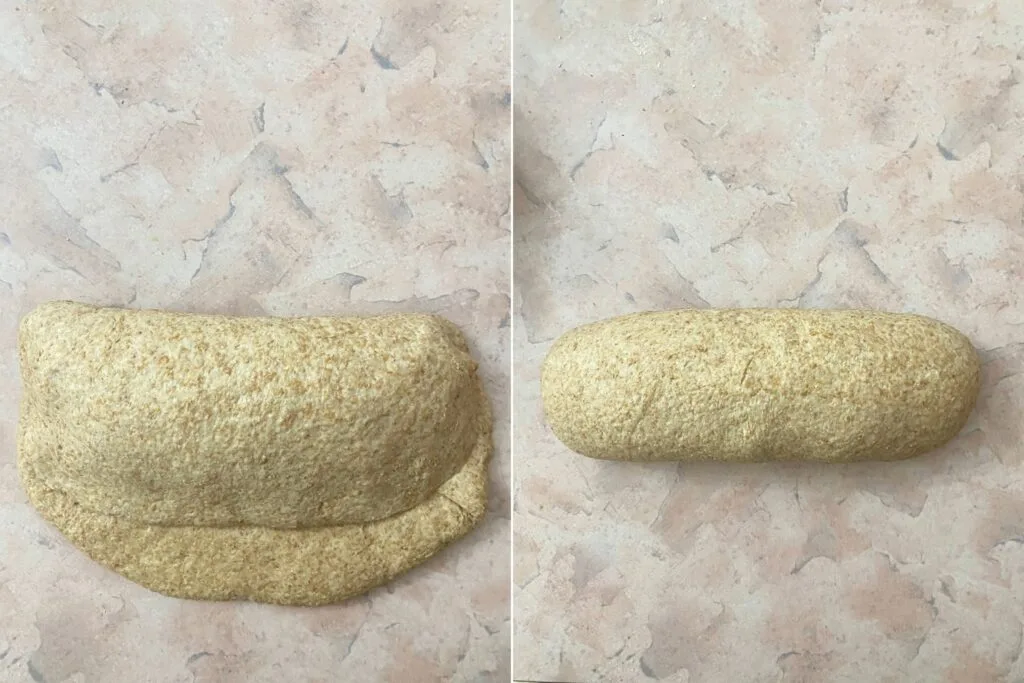
Prepare the topping by pouring the oil over the wheat bran and rubbing together. Roll the shaped loaf onto the oiled bread and place it in your baking pan. My dad taught me this trick for decorating bran bread.
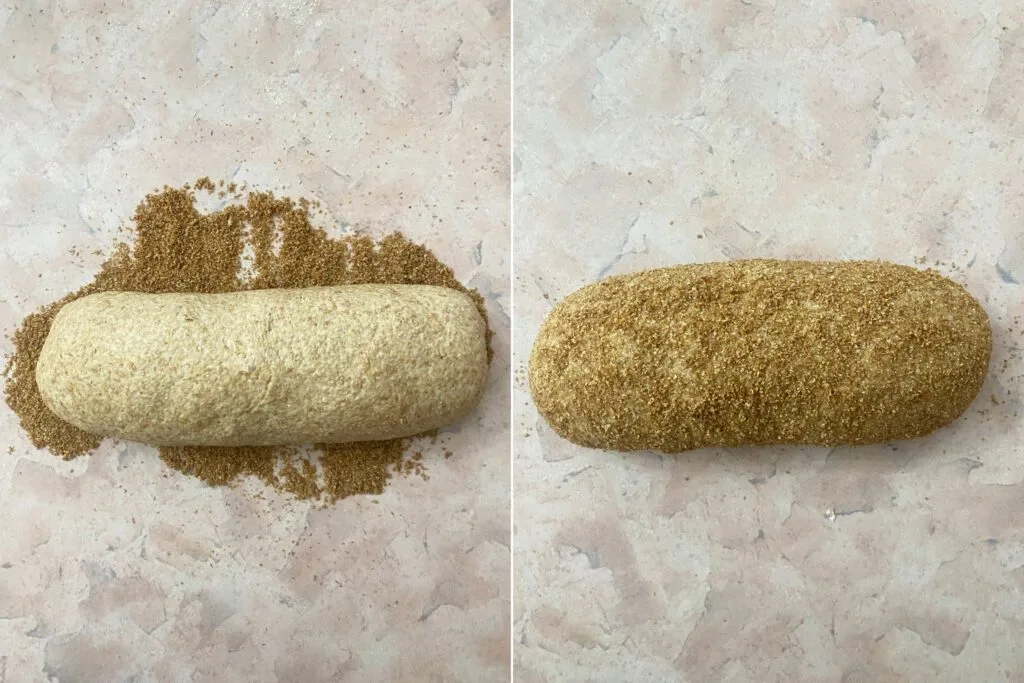
Let the dough rise until it’s about an inch above the top of the pan. Don’t rush the rising time. If you are in a hurry check out my tips below.
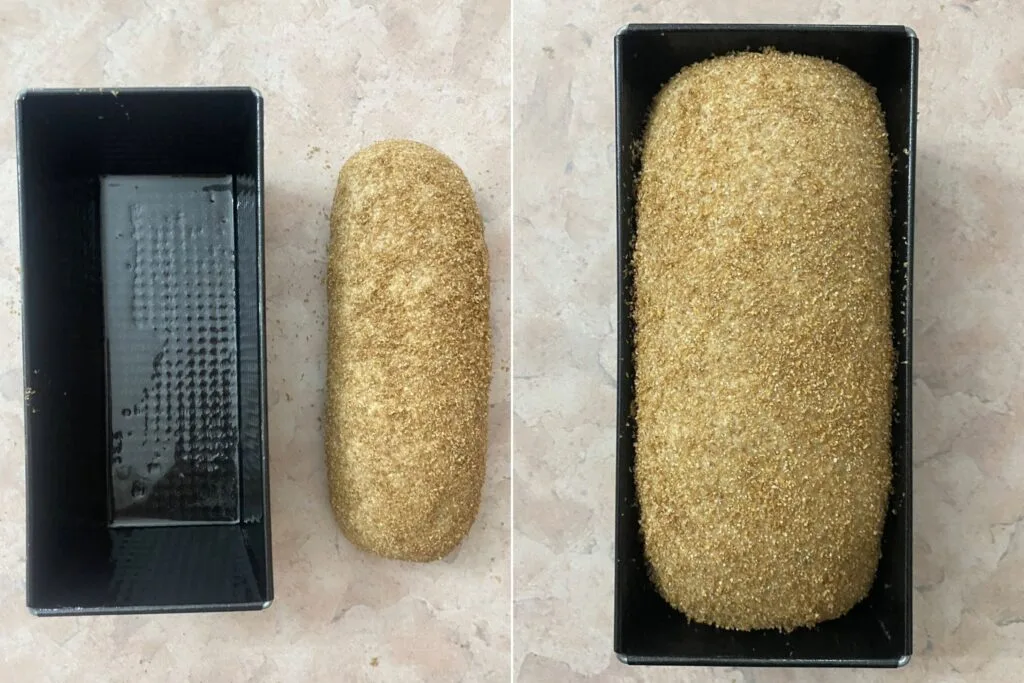
Bake for 35-40 minutes or until an instant-read thermometer registers around 200°F (93°C) in the center of the bread.
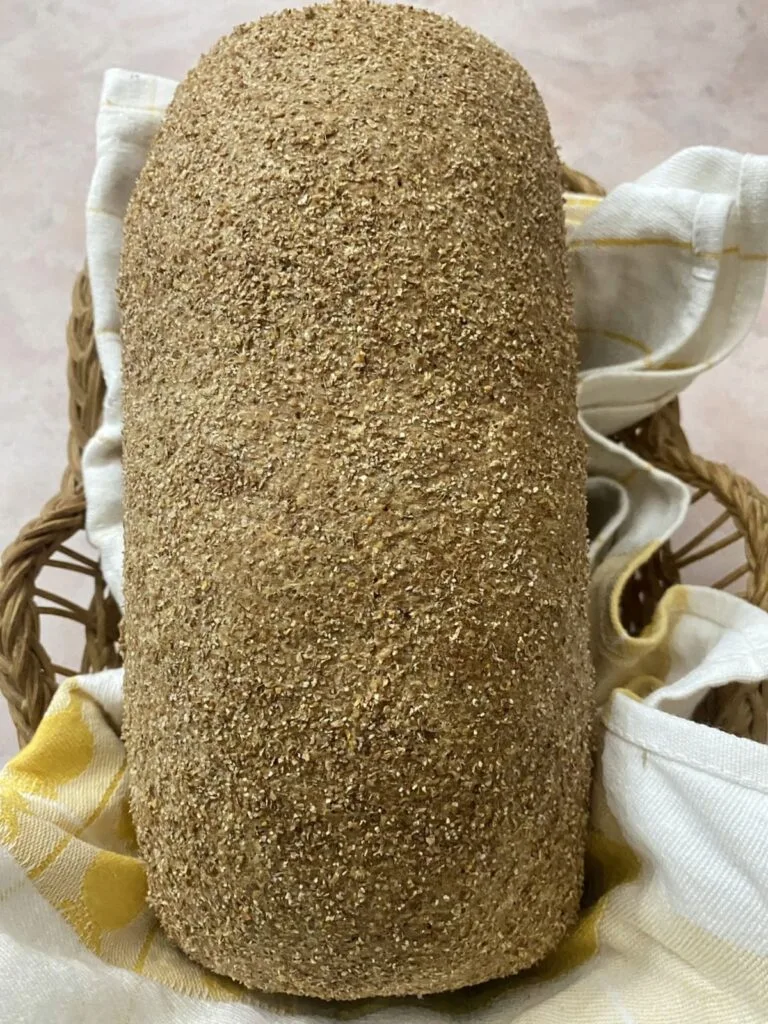
3 Tips for a Successful Recipe
- Knead the dough for as long as possible, at least 8 minutes and the dough smooth. If it’s too much work for you manually and you have a hand mixer, use it as described on the recipe card.
- Don’t rush the rising times. Bran bread takes longer to rise due to the weight of the wheat bran. Give the bread plenty of time to rise. If you are in a hurry, put the bread pan in a warm environment after the 8th step, this will shorten the rise time.
- Add sweeteners to bran bread dough to improve its final texture and balance its strong, nutty flavor.
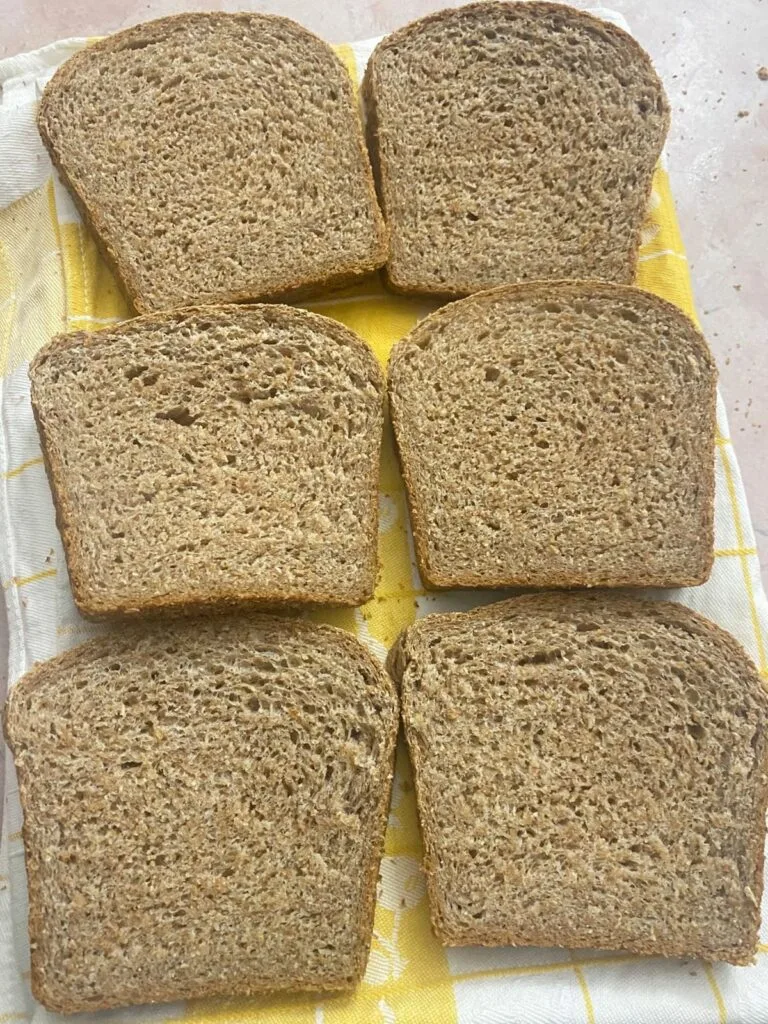
If you try this feel Good Wheat Bran Bread recipe or any other recipe on Bread Flavors, then don’t forget to rate the recipe and leave a comment below! Whether you made it exactly as written or added your own twist, you feedback help others who are thinking of making the recipe. Have a question before baking? Ask away in the comments, we’re happy to help! And if you snapped some shots, tag @BreadFlavors on Instagram so we can share your creation in our Stories!
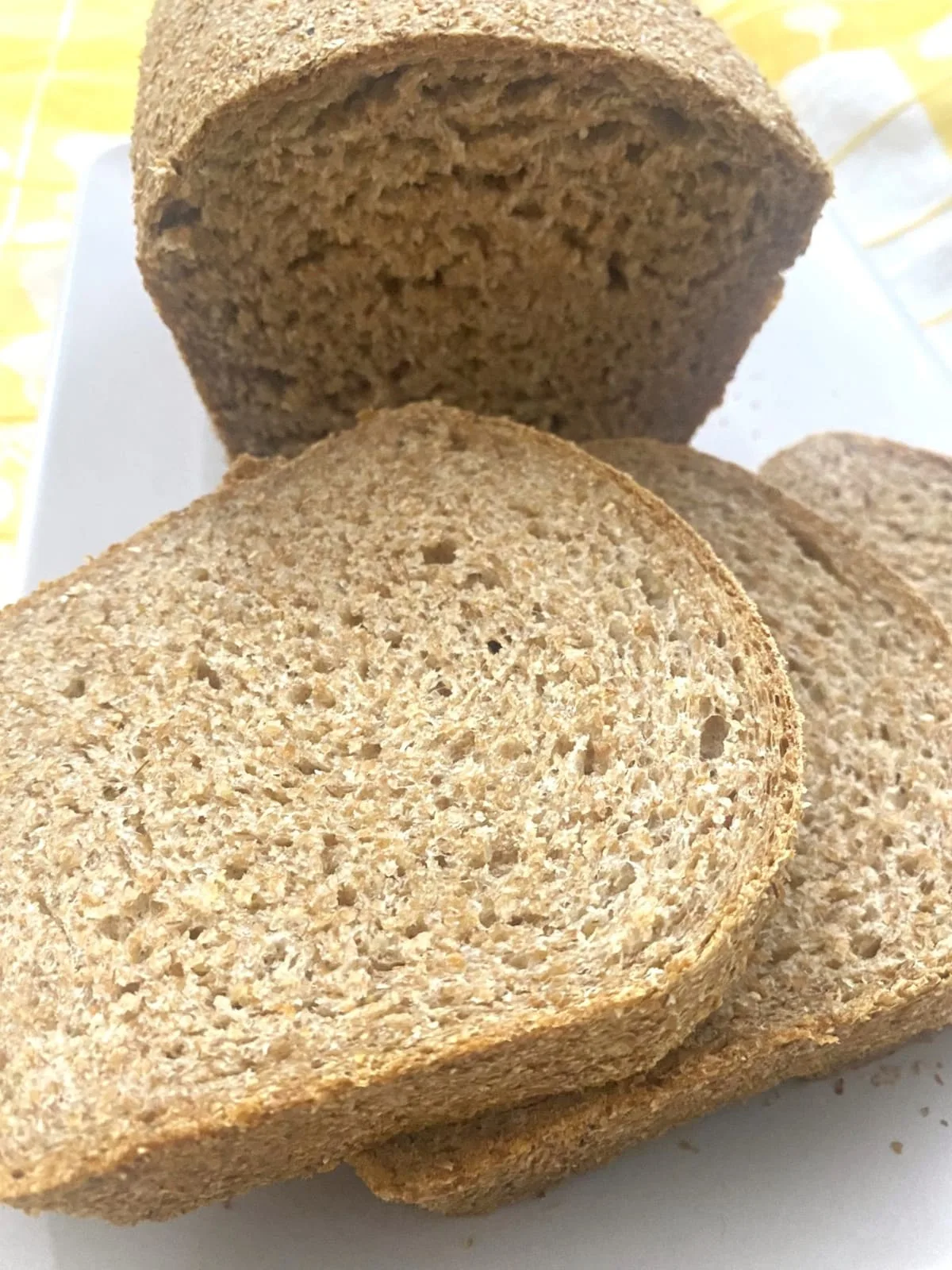
Wheat Bran bread
Ingredients
Sponge
- ¼ cups (35 grams) bread flour
- 2 and 1/4 teaspoons (7 grams) instant or active dry yeast
- ¼ cup (60 grams) milk, lukewarm
- ¼ cup (60 grams) water, lukewarm
Dough
- 1 and ½ cups (120 grams) bran flour
- 1 and 1/4 cups (175 grams) bread flour
- 1 and ½ cups (210 grams) whole wheat flour
- ¾ and ⅓ cups (230 grams) water, at room temperature
- ¼ cup (50 grams) olive or vegetable oil
- ½ tablespoon (8 grams) sea salt
- ½ tablespoon (10 grams) honey
- 1 tablespoon molasses
- 1 tablespoon lemon juice
Topping (optional)
- ⅓ cup (45 grams) bran flour
- ½ tablespoon (5 grams) olive or vegetable oil
Instructions
- Make the sponge: Heat the milk, add it to the water and mix together. In a medium mixing bowl, add the milk mixture, bread flour and yeast. Stir together with a wooden spoon or spatula until well combined. Cover and let rise for 30-40 minutes or until doubled in size. *if the temperature is cold, it takes about 1-1.5 hours*
- Mix the dough: In a large mixing bowl or the bowl of a stand mixer, add all the sponge starter and the remaining ingredients for the dough, including the flour, lemon juice, salt, etc. Mix the ingredients with a spatula, wooden spoon or dough hook for about 3-4 minutes until the dough forms and comes together.
- Knead the dough: Transfer the dough to your work surface and knead the dough by hand for 8-9 minutes. If you are using a hand mixer, continue kneading on a low speed for an additional 8 minutes. If the dough seems too sticky, add a small amount of flour until it becomes soft and does not stick to your hand. If the dough seems too hard and dry, add a small amount of water.
- 1st Rise: Shape the dough into a ball and place in a lightly greased bowl. Cover with plastic wrap or a kitchen towel. Let rise for 90-120 minutes or until doubled in size.
- Prepare the topping: Pour the oil over the bran and rub together.
- Grease a 9×5 or 10×4 inch loaf pan.
- Shape the dough: When the dough is ready, Place it on a work surface. Flatten the dough into a large rectangle, about 8×12 inches (22×30 cm). Fold one quarter of the dough toward the center and lightly press to seal. Bring the outer corners to the center so they overlap slightly, then seal again. fold and seal twice more. See the picture above for step-by-step instructions on how to shape the dough. *You are a beginner baker, that's ok! roll out the dough with rolling pin then roll up into a 9-inch log.*
- Top it: Spread oiled bran on your work surface. Gently roll the shaped bread onto the bran. Make sure that the shaped dough is evenly coated then place in the prepared loaf pan.
- 2nd Rise: Cover the shaped loaf with plastic wrap or a kitchen towel. Allow to rise until it is about 1 inch (2.5 cm) above the top of the pan, about 60-90 minutes.
- Preheat the oven to 340°F (170°C).
- Bake: Bake for 40-45 minutes or until an instant-read thermometer registers around 200°F (93°C) in the center of the bread. Remove the pan from the oven and allow the bran bread to cool in the pan on a wire rack for 15 minutes before removing the bread from the pan and slicing.
Notes
Yeast: You can use either instant or active dry yeast in this recipe. Honey: Honey adds a touch of sweetness to the bread. If you don’t have you can substitute regular granulated sugar or brown sugar. Special Tools (affiliate links): KitchenAid Stand Mixer, or Silicone spatula with Mixing Bowls | Measuring Cups and SPOONS or Kitchen Scale | Rolling pin | 9*5 loaf pan or 10*5 loaf pan | instant-read thermometer.



